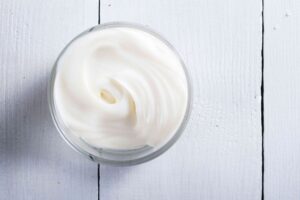:max_bytes(150000):strip_icc():format(jpeg)/Health-GettyImages-1382153781-30f90c1583b74b15a6149063e25ffd93.jpg)
Eating a small amount of sugar from time to time might be better for your heart than completely eliminating it, a new study suggests.
The report, published on Dec. 8 in Frontiers in Public Health, also found that the impact of added sugar on heart health differs based on which type of sugar a person usually consumes. Specifically, people who got their sugar from treats such as pastries or toppings such as honey had better heart health outcomes than people who drank sugar-sweetened beverages.
These findings emphasize the importance of eating a balanced diet, experts said.
“The study aligns with the idea that sugar intake within an overall diet pattern matters,” Maya Vadiveloo, PhD, RD, chair of the American Heart Association Lifestyle Nutrition Committee and associate professor in the Department of Nutrition at the University of Rhode Island, told Health.
Contrary to popular belief, people do not need to cut out sugar to stay healthy.
“The study reinforces that sugar doesn’t have to be eliminated entirely,” said Kailey Ogilvie, MS, RDN, clinical nutrition coordinator at Mount Sinai Health System. “It’s about moderation, awareness, and balance. By making mindful choices, people can enjoy sugar occasionally without compromising their health.”
However, “the average American’s sugar intake is [about] two to three times higher than the range linked to the best cardiovascular outcomes in the study,” Ogilvie told Health.
Here’s what experts had to say about the new research, how it adds to our understanding of sugar’s impact on the body, and how tweaking your sugar consumption may help protect your heart health.
The researchers behind the new report wanted to investigate how different kinds of sugar impact the cardiovascular system specifically.
“The link between sugar-sweetened beverage intake and cardiovascular disease risk is well-established,” report author Suzanne Janzi, a doctoral student at Lund University in Sweden, told Health. “In contrast, very few studies have investigated whether overall added sugar intake and other dietary sources of added sugar are linked to cardiovascular disease risk.”
For the study, Janzi and her team analyzed a large pool of data from people living in Sweden. Nearly 70,000 participants took a questionnaire about their dietary and lifestyle habits in 1997. Over 42,000 participants took that survey again in 2009.
Then, the researchers tracked how many participants developed one of seven cardiovascular diseases, including stroke, heart attack, and atrial fibrillation, through 2019.
Based on the survey responses, the team sorted participants’ added sugar intake into three categories, Janzi explained. Those were treats, which included pastries, chocolate, and ice cream; toppings, such as honey, jam, or table sugar; and sugar-sweetened beverages, including sodas and fruit drinks.
Participants were then sorted into six groups based on their average sugar intake. The lowest group got less than 5% of their daily energy intake from sugar, while the highest group got over 20% of their calories from sugar.
“For reference, many nutritional recommendations suggest to keep your added sugar intake below 10% [of your energy intake],” Janzi explained.
After analyzing the data, Janzi and her team found that the lowest sugar intake group had the highest cardiovascular disease risk.
This suggests “that extremely low sugar intake might not be necessary for preventing cardiovascular diseases,” she said.
However, people with a low or moderate sugar intake—around 7.5% of daily energy intake—had the best cardiovascular outcomes. “[These participants] ate, on average, four to five servings of treats per week,” Janzi said.
The study results also showed differences not just in how much sugar a person ate but also in what kind.
“We found that drinking sugar-sweetened beverages was linked to a higher risk of several cardiovascular diseases, while eating treats like pastries and chocolate was linked to a lower risk,” Janzi said.
Added sugars are typically associated with health issues. But Janzi and her colleagues aren’t totally sure why study participants who ate small amounts of sugar fared better than those who ate no sugar, she said.
However, it’s possible that those who didn’t eat sugar had other health conditions that made them more prone to heart health issues, she explained.
As for why some types of sugar—namely, treats and toppings—were better for heart health than sugar-sweetened beverages, there are a few theories, Janzi said.
“Liquid sugars are absorbed more rapidly in the digestive system,” she explained. “Solid sugars are often part of foods that contain other nutrients like fiber, proteins, and fats, [and] these components slow down the digestive process, leading to a more gradual release of sugar into the bloodstream.”
In other words, people may feel more satisfied after having a solid sweet, lessening the chances of sugar overconsumption and poor health outcomes.
Cultural practices could have also played a role.
“In Swedish culture, ‘fika’ is a significant social tradition where people gather with friends, family, or coworkers for coffee and pastries,” Janzi said. “It’s possible that the consumption of treats during these social interactions is strongly linked to social relationships, which have previously been linked to [better] cardiovascular health. This could mean that those who don’t eat any treats might not have as many of these social interactions.”
Overall, more research needs to be done to confirm the link between small amounts of sugar and better heart health, experts said.
Though some small amounts of sugar seem to be good for the heart, that doesn’t necessarily mean that people should start adding pastries or other treats to their weekly diet.
Notably, most Americans already consume more sugar than the amount the researchers found to be linked with the best heart health outcomes.
“For reference, 5 to 7.5% of daily energy intake equates to [about] 25 to 37.5 grams of added sugar per day for a 2,000-calorie diet,” Ogilvie said. On average, American adults consume about 17 teaspoons, or about 71 grams, of added sugar each day.
And, in the U.S. specifically, this added sugar is often coming from sugar-sweetened beverages. “Sugary drinks are a leading source of added sugars among Americans,” Julia Zumpano, RD, dietitian at Cleveland Clinic, told Health.
It may not be possible—or necessary—to cut sugar from your diet completely, Vadiveloo said. Instead, be intentional with your sugar intake and couple occasional treats with exercise and healthy diet choices, she recommended.
“If it is going to be consumed, it should be done in small quantities and infrequently—perhaps small portions of a treat enjoyed socially while limiting sugar at other points during the day and week,” said Vadiveloo.













